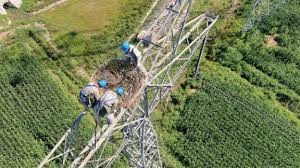Ambassador Donald Blome’s trip to northern Sindh calls attention to acute malnutrition emergency

Celina Ali
Islamabad: One year after Pakistan’s devastating 2022 floods, millions of Pakistanis still need urgent support. As UNICEF reported, more than 1.5 million children require lifesaving nutrition interventions; floods damaged vital infrastructure, including 30,000 schools, 2,000 health facilities, and 4,300 water systems; and access to safe drinking water and sanitation remains worryingly low.
As demonstrated by Ambassador Blome’s fourth trip to Sindh on October 10-11, the United States is still hard at work – helping the poorest, hardest hit parts of Pakistan rebuild and recover. Specifically, the United States is helping Pakistan meet urgent needs in the areas of education, water, and health care:

During his trip, the Ambassador celebrated the opening of the 100th school constructed as part of the Sindh Basic Education Program. By 2024, more than 80,000 girls and boys will study in 106 new, climate-resilient school buildings funded by USAID. These state-of the art facilities come with science and computer labs, a library, and modern furniture. They also serve as flood-resilient safe havens and important platforms for parent and community engagement.
U.S. support has also transformed the way that the people of Jacobabad access safe drinking water. Access to clean, safe drinking water is one of the pillars of the U.S. – Pakistan “Green Alliance” framework. Today, thanks to a $36.7 million agreement with the Sindh Planning and Development Department, water, sanitation, and hygiene services in Jacobabad for the city’s 300,000 residents have improved. The program includes improved garbage collection, installation of a water filtration plan and delivery system, and improvement of the city’s wastewater sewage system. During his visit, the Ambassador visited the Municipal Services Program Water Filtration Plant, completed in 2020, part of a $24.4 million water filtration and delivery system project funded by USAID.

The Ambassador also toured the Basic Health Unit in Khairpur, a front-line facility helping respond to Pakistan’s acute malnutrition emergency and improve lives and health outcomes in flood-affected districts across Sindh. With support from USAID, the Basic Health Unit provides Ready to Use Therapeutic Food, nutrition counseling, screening, and treatment to improve the health of children under five years old and women who are pregnant or breastfeeding.
The 2022 floods hit women and children disproportionately hard. At the Sindh Rural Support Organization Office in Sukkur, Ambassador Blome commended the heroic work of community midwives whose work reduces maternal and infant mortality. To help meet acute maternal health needs, the Ambassador delivered U.S.-donated equipment and kits that will be used to establish 100 community midwives birth stations in Sindh, allowing access timely, high-quality maternal health services at proximity to their homes.
The United States has and will continue to stand with Pakistan and its vulnerable communities as millions of Pakistanis work to recover and rebuild. That includes the work we are doing to address malnutrition, build more resilient education facilities, improve access to clean water and sanitation, and provide needed equipment to ensure better health outcomes for women and children.
Since 2022, the U.S. government has provided more than $215 million in flood relief, disaster resilience, food security, and acute malnutrition assistance for Pakistan.





